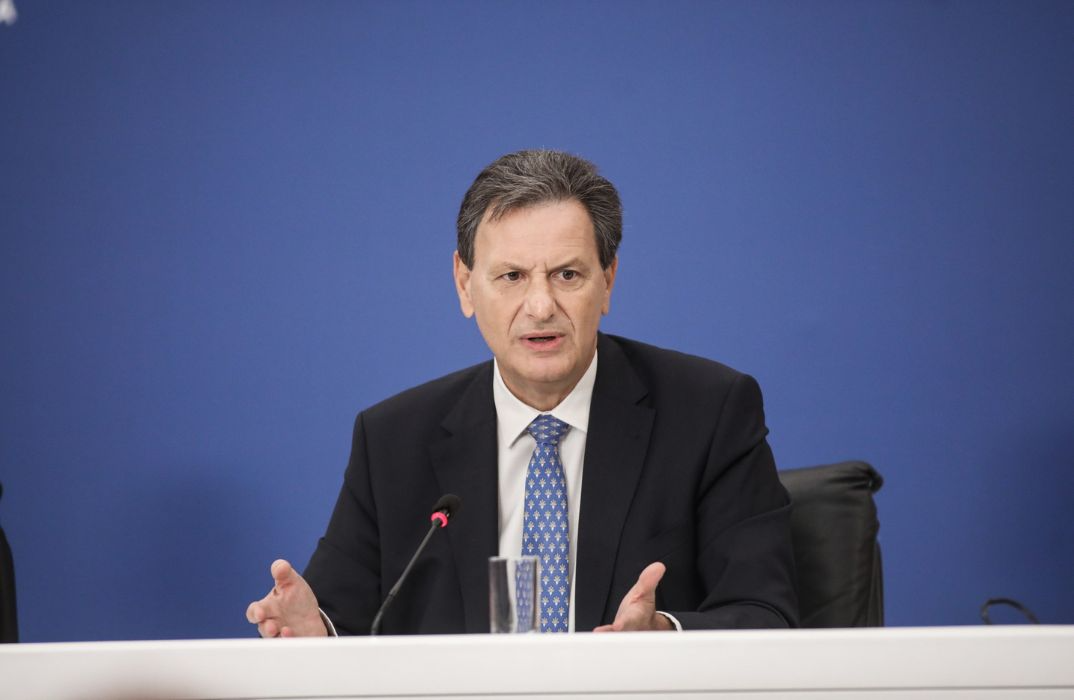
Greece, Romania, and Bulgaria are taking the initiative to mobilise Europe to reduce energy prices, announced today the Minister of Environment and Energy, Theo Skylakakis, speaking to a radio station.
In particular, the Ministry of Environment and Natural Resources, in response to a question regarding the cost of energy for the consumer, noted that in the first phase the government is monitoring developments in the market. The Energy Ministers of Greece, Bulgaria, and Romania are taking a joint initiative at the same time with the intention of setting up a permanent intervention mechanism whenever South-East Europe's disconnect from the rest of the European energy market results in extreme prices.
"The following paradox is happening: There are not enough interconnections to transfer electricity from the Central European market to the South-East. This results in extreme prices on some days, which cannot be accepted in our opinion and is problematic—in this particular case—and the operation of the so-called target model is problematic.
As the Minister explained, "while the problem is that an "energy island" is created in the region—that is, there are not enough interconnections—the "signal" of the market is that producers get more money. It makes no sense to give money to producers when they need interconnection investments (cables) that should be made by the network operators. Let alone when the managers take the investment money from the consumers themselves. This is a fundamental argument. And we have a good justification for pursuing a permanent solution, a proper tool, to these endemic phenomena. Regardless of this initiative, the government will intervene whenever necessary, and we have demonstrated this, repeatedly, in the past."
It is noted that Mr. Skylakakis also discussed the issue with the Federal Minister for Economic Affairs and Climate Action of Germany, Dr. Robert Habeck, on the sidelines of the 88th TIF.
Referring to tackling water scarcity, the minister said that on Wednesday (11/9) the set of measures the government is taking for this purpose will be presented. He pointed out that there are areas that are under immediate pressure, such as the Aegean islands and especially the Cyclades, areas of the Eastern Peloponnese, Crete, etc., but also areas such as Attica, for which the long-term plan will be presented in order to avoid the threat of water scarcity. The plan, the minister said, includes the implementation of the necessary actions with great speed.
ABOUT CYPRUS
With regard to the Crete-Cyprus Great Sea Interconnector, Mr.Skylakakis noted that, in the opinion of the Greek government, it does not face any issue of economic feasibility in terms of the benefits it provides, especially to Cypriot consumers.
As he explained, based on the data of the study and the model of IPTO and the publicly available data on the operation of the two markets, the price differences between Greece and Cyprus are so large (72 euros more expensive in the Cypriot market than in the Greek market in 2024) that in all possible realistic scenarios the cable has significant gains from the point of view of Cypriot consumers.
The problem is that there is no economic viability of the project in terms of the regulatory framework (i.e., that the developer, IPTO, which is 51% owned by the Greek taxpayer, can do the project without incurring a loss, which is also not legally allowed).
Economic viability has not been achieved, although it is an obligation of the regulators under the relevant European regulations, especially after the RAEK decision last July and despite the fact that the relevant contractual deadlines with the cable manufacturer have passed.






